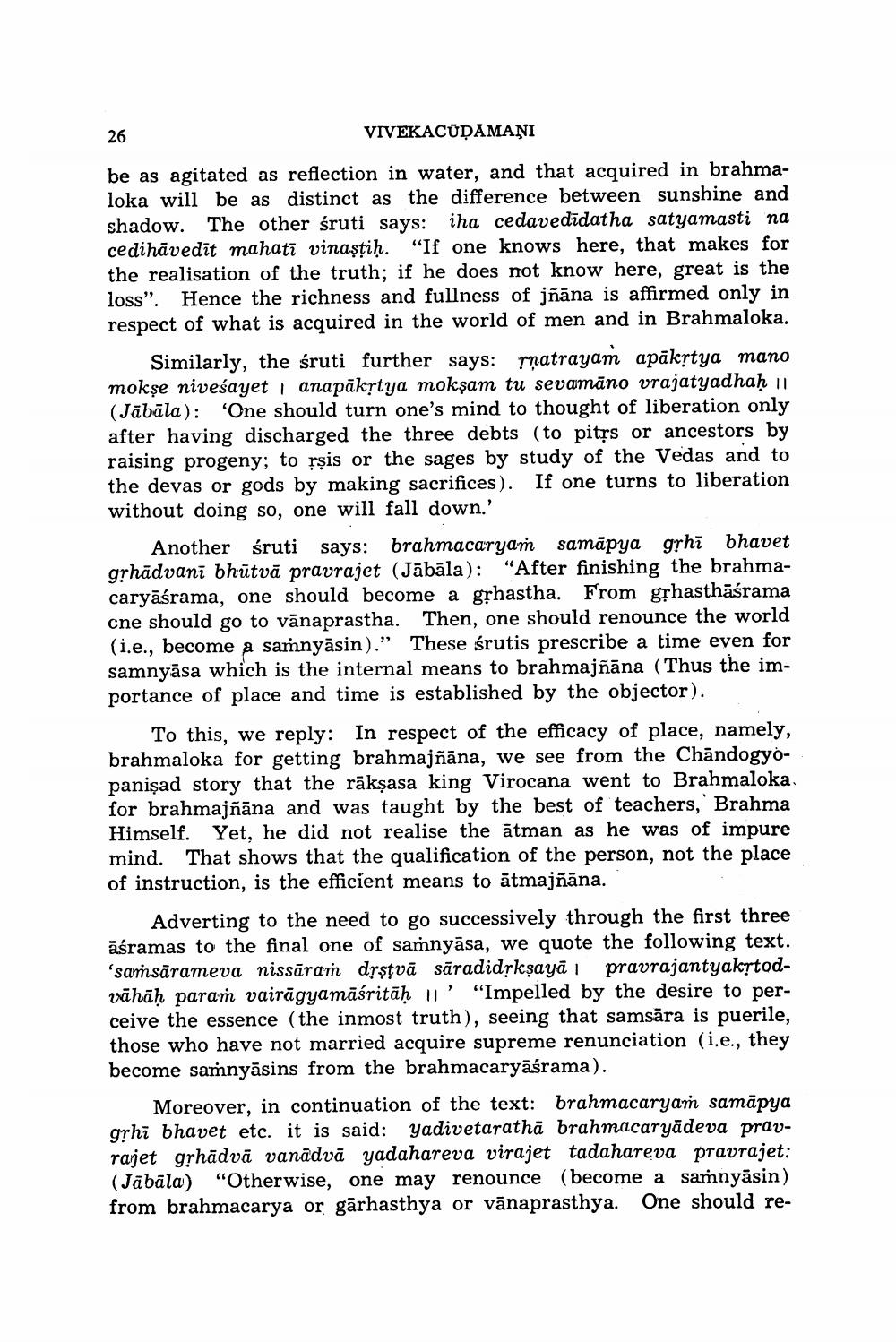________________
26
VIVEKACŪDAMAŅI
be as agitated as reflection in water, and that acquired in brahmaloka will be as distinct as the difference between sunshine and shadow. The other śruti says: iha cedavedīdatha satyamasti na cedihāvedit mahatī vinastih. "If one knows here, that makes for the realisation of the truth; if he does not know here, great is the loss”. Hence the richness and fullness of jñāna is affirmed only in respect of what is acquired in the world of men and in Brahmaloka.
Similarly, the śruti further says: natrayam apākstya mano mokṣe niveśayet | anapākstya mokşam tu sevamāno vrajatyadhaḥ 11 (Jābāla): 'One should turn one's mind to thought of liberation only after having discharged the three debts (to pitrs or ancestors by raising progeny; to rșis or the sages by study of the Vedas and to the devas or gods by making sacrifices). If one turns to liberation without doing so, one will fall down.'
Another śruti says: brahmacaryam samāpya gļhi bhavet grhädvanī bhūtvā prāvrajet (Jābāla): “After finishing the brahmacaryāśrama, one should become a grhastha. From grhasthāśrama cne should go to vānaprastha. Then, one should renounce the world (i.e., become a saṁnyāsin).” These śrutis prescribe a time even for samnyāsa which is the internal means to brahmajñāna (Thus the importance of place and time is established by the objector)
To this, we reply: In respect of the efficacy of place, namely, brahmaloka for getting brahmajñāna, we see from the Chāndogyópanişad story that the rākşasa king Virocana went to Brahmaloka. for brahmajñāna and was taught by the best of teachers, Brahma Himself. Yet, he did not realise the ātman as he was of impure mind. That shows that the qualification of the person, not the place of instruction, is the efficient means to ātmajñāna
Adverting to the need to go successively through the first three āśramas to the final one of saṁnyāsa, we quote the following text. 'samsārameva nissāram drstvā sāradidskṣayā pravrajantyakrtodvāhāh param vairāgyamāśritāḥ 11? "Impelled by the desire to perceive the essence (the inmost truth), seeing that samsāra is puerile, those who have not married acquire supreme renunciation (i.e., they become sarinyāsins from the brahmacaryāśrama).
Moreover, in continuation of the text: brahmacaryam samāpya gļhi bhavet etc. it is said: yadivetarathā brahmacaryādeva pravrajet grhädvā vanādvā yadahareva virajet tadahareva pravrajet: (Jābāla) "Otherwise, one may renounce (become a samnyāsin) from brahmacarya or gärhasthya or vānaprasthya. One should re




